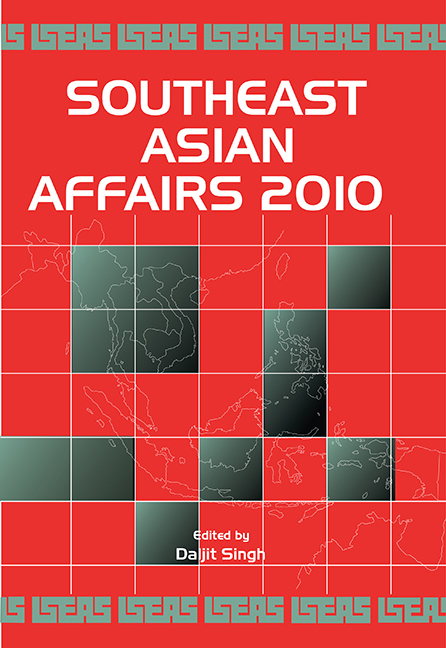Ethnic Politics in Myanmar: A Year of Tension and Anticipation
from MYANMAR
Published online by Cambridge University Press: 21 October 2015
Summary
The year 2009 was marked by rising tension in ethnic politics as different parties and stakeholder groups began to position themselves in advance of the 2010 general election, pledged by the ruling State Peace and Development Council (SPDC). The first general election in Myanmar in twenty years (and only third in fifty), the 2010 polls are an integral element in what could become the most defining year in a generation, setting the landscape for the introduction of a new constitution and system of government. No quantum leap of change is expected. Under the new constitution, the leading role of the Myanmar armed forces (Tatmadaw) in national politics will be maintained through reserved positions for military personnel in both parliament and government.
Nevertheless, as 2009 progressed, leaders on all sides of Myanmar's political and ethnic divisions recognized that the 2010 election is an eventuality that they cannot ignore. For while the success or failure of the 2010 polls is likely to prove historic judgment on the political road map of the military government, events during 2009 signalled that they also represent a landmark challenge for the country's different ethnic groups. Whether by contesting, boycotting, or confronting the polls, the fate of individual nationality movements could be decided for many years to come.
Adding pressure on the political actors in Myanmar were the activities of Asian neighbours. In a fast developing region, political and ethnic events in Myanmar were followed with ever greater interest. During 2009, economic engagement accelerated, with a host of major energy, trade, and infrastructure projects under way or in the early stages of planning that are likely to change the political economy forever. Many are located in the ethnic minority borderlands, meaning that stability in Myanmar and international progress are becoming closely interlinked. In the longer-term, Myanmar could be moving towards economic restructuring where the geopolitical consequences will also have an epoch-shaping impact on internal affairs.
There remains, however, a long way to go. One of the most ethnically diverse countries in Asia, the legacies of ethnic conflict have long underpinned state failure and humanitarian decline. Developments in 2009 could only provide indications of the likely trends as the SPDC attempts to initiate its plans for the 2010 election and its political road map. A critical time has arrived, causing all political actors to respond.
- Type
- Chapter
- Information
- Southeast Asian Affairs 2010 , pp. 214 - 234Publisher: ISEAS–Yusof Ishak InstitutePrint publication year: 2010



